Lemon Juice For Acne And Scarring: 2 Easy DIY Treatments
Tips and methods to use lemon water for clean, clear, and acne-free skin.
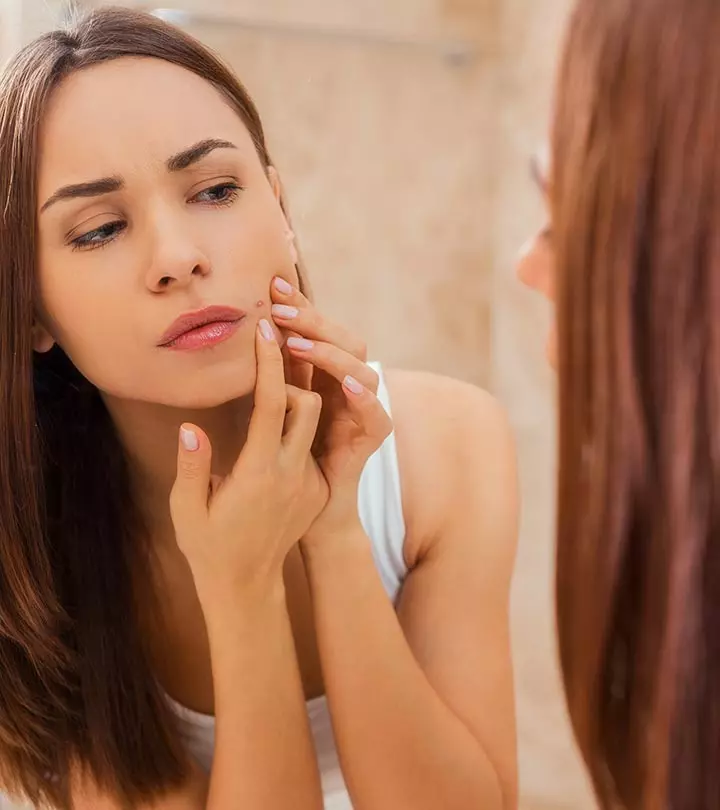
Image: iStock
Several skincare products include citrus fruits such as lemon for their high antioxidant properties. Using vitamin C-rich lemon juice for acne and scar fading is a great idea as it helps fight free radicals and stimulate collagen production. It also contains important vitamins and minerals which improve your overall skin health. Even though lemons have been used for treating skin conditions for years, there might be some potential side effects of using lemon which can cause further damage to our skin. Currently, no study demonstrates the efficacy of lemon juice for acne treatment. Hence, you should consult your dermatologist before doing so. In this article, ex explores how to apply lemon on your face along with a few side effects one should be aware of. Scroll down to know more!
In This Article
Does Lemon Juice Help Acne?
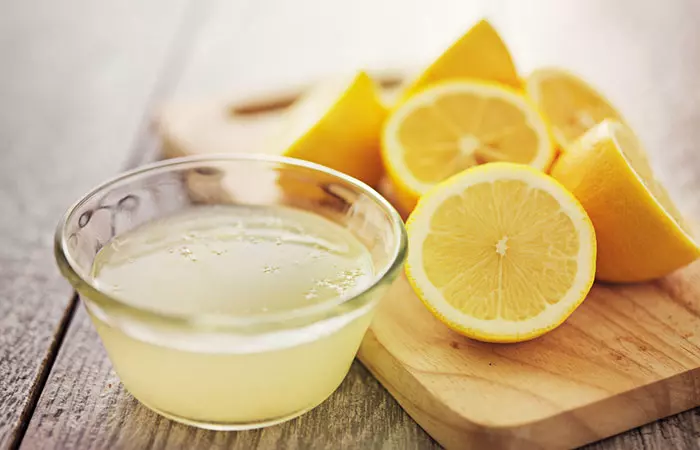
Lemon and its extracts have been extensively used in various skin care products due to their powerful antioxidant potential. In general, antioxidants can help in scavenging free radicals on the skin and boosting collagen levels.
Acne is one of the most commonly diagnosed skin conditions in the United States and affects around 9.4 % of the global population (1). While there is a range of over-the-counter treatments available for treating acne, many people are on the lookout for natural methods to deal with the issue.
Tasha, a beauty, skincare, and hair blogger, tried a home remedy using lemon and baking soda. Sharing the results, she says, “I’ve used this mixture twice now, and my blackhead problem skin is looking so much better. My cysts and large pimples get smaller with every use, and the redness starts to go away immediately! If you want to go all out, use lemon juice as a toner morning and night (i)!”
 Did You Know?
Did You Know?Anecdotal evidence validates the use of lemon in treating acne-prone skin, whitehead removal, blackhead removal, removing dead skin cells, improving acne marks, and aiding acne scar removal. The properties that may make lemon juice a great option to consider for treating acne are as follows:
- Lemon juice is anti-inflammatory (2). It can help reduce swelling, itchiness, and redness associated with acne.
- It also exhibits antiseptic and bactericidal activities (3). These activities can help prevent the progression of acne and kill acne-causing bacteria.
- Lemon juice dries out your skin due to the presence of citric acid, which helps in sebumi A waxy, greasy substance created by the sebaceous glands in your body that covers, hydrates, and shields your skin. regulation and pore cleansing (4).
- Lemon extract is used in various skin lightening and skin brightening products due to its bleaching properties (5). Thus, it can help in lightening hyperpigmentation caused by acne spots and in skin resurfacing.
Here’s how you can use it.
Key Takeaways
- Lemon juice can reduce inflammation and kill infection-causing bacteria. This helps treat acne.
- It also has natural depigmenting properties that can lighten your acne scars.
- It is advisable to dilute lemon juice with water before applying it to prevent skin sensitivity.
- Lemon juice makes your skin sensitive to light, so a suitable sunscreen is essential before stepping out into the sun.
How To Apply Lemon Juice For Acne And Scarring
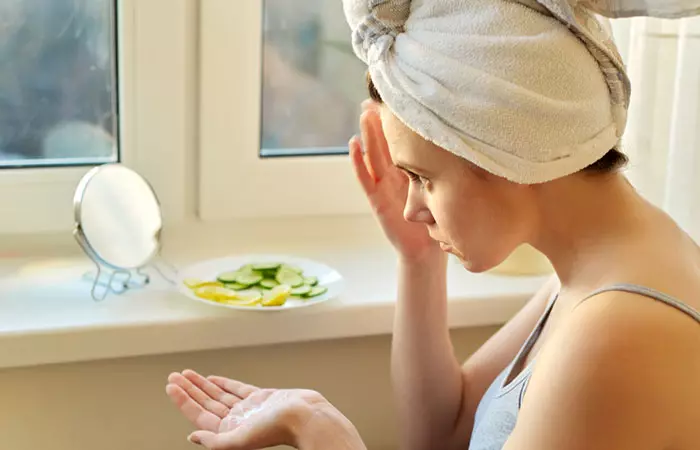
1. Lemon Juice And Water
You Will Need
- 1 tablespoon of lemon juice
- 1 tablespoon of water
- Cotton pads or balls
What You Have To Do
- Mix a tablespoon of lemon juice with a tablespoon of water.
- Apply the mixture to your face and neck using a cotton pad or ball.
- You can also apply this mixture as a spot treatment.
- Leave it on for 15-20 minutes and rinse it off with water.
How Often You Should Do This
You can do this once daily or every alternate day.
Lemon juice can dry out your skin. Hence, it is recommended that you use a non-comedogenici A term used to describe specific beauty products or cosmetics that claim not to clog or block pores. moisturizer after trying out the above remedy for skin nourishment.
2. Lemon Juice And Vaseline
You Will Need
- Juice from ½ lemon
- 1 teaspoon of Vaseline
What You Have To Do
- Squeeze the juice from half a lemon into a bowl.
- Add the Vaseline to the bowl.
- Mix the ingredients for a thick and even paste.
- Apply the mixture to your face with a brush.
- Let it sit for 15 to 20 minutes.
- Rinse it off with a regular cleanser.
How Often You Should Do This
You can do this once a week.
Anecdotal evidence suggests that petroleum jelly forms a barrier over the skin, allowing the pimple to heal faster. Combined with the antibacterial properties of lemon, it may help manage acne (3).
Listed below are some tips that you should remember while using lemon juice for topical treatments.
Tips To Remember While Using Lemon Juice On Your Skin
- Do a patch test before applying lemon juice to the affected area.
- Always dilute the lemon juice before applying it to your face as it may sting.
- Follow up with a moisturizer after using lemon juice topically.
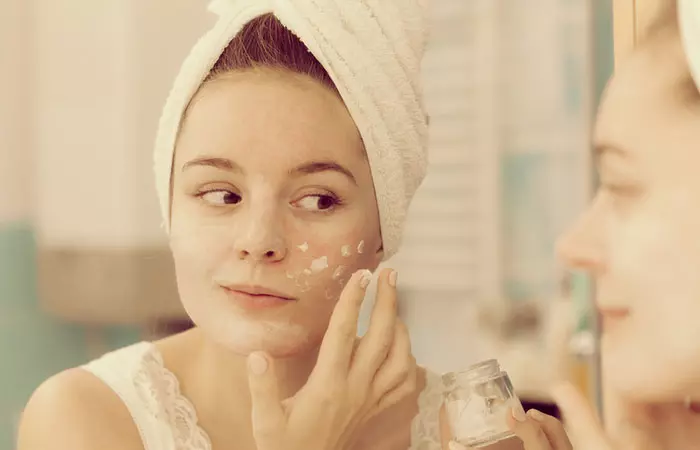
- Avoid exposure to direct sunlight after using this remedy as lemon juice can make your skin photosensitivei A disorder where the skin becomes extremely sensitive to sunlight or other UV light sources and is at risk of burning quickly. (6). Always apply sunscreen for skin protection before stepping out.
- Use freshly extracted lemon juice for maximum benefits.
 Quick Tip
Quick Tip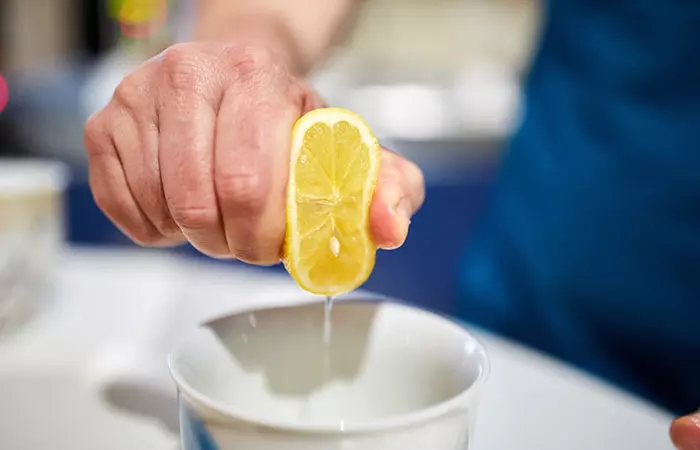
There are also a few side effects that may occur when you apply lemon juice topically. They are listed below.
Side Effects Of Applying Lemon To The Skin
- Itchiness
- Redness

- Dryness
- Stinging or burning
- Killing good bacteria present on the skin
Note:
Do not apply lemon juice on broken or extremely sensitive skin as it might cause irritation. Also, always do a patch test before topical application to check for adverse reactions. Additionally, apply aloe vera gel or a lightweight, hydrating moisturizer with soothing ingredients like shea butter on the skin area after using lemon juice.
Infographic: 4 Reasons To Use Lemon Juice For Acne
Acne scars are a major skin concern for women. While they are harmless, they feel unattractive and mar your overall appearance. So, it’s time to handle them with a simple DIY hack – lemon juice. The infographic below explains how it may help reduce acne and what safety measures you must follow to ensure it doesn’t damage your skin. Take a look!
Some thing wrong with infographic shortcode. please verify shortcode syntaxThe high antioxidant properties of lemon juice make it one of the popular ingredients in several skin care products. Though there is not enough evidence to prove its efficacy, anecdotal claims support using it for acne and scar treatments and for skin regeneration. It is believed to soothe the skin, help reduce itching, redness, and swelling, and treat hyperpigmentationi A harmless disorder where patches of skin are darker than the surrounding skin due to excess melanin production. . The article here discusses how to use lemon juice for acne and scarring. Following the tips mentioned above will help you reap maximum benefits. However, it may cause side effects if not applied with caution.
Frequently Asked Questions
How long does it take for acne scars to go away with lemon juice?
Pigmentation caused by acne generally fades in 7 to 10 days. However, post-inflammatory hyperpigmentation may take anywhere between a few months to even a year to fade completely. However, acne scars that extend into the dermisi The layer of the skin directly beneath the visible and touchable area that is full of capillaries, sweat glands, and hair follicles. will never go away completely.
Does drinking water help acne?
While consuming water alone will not cure acne, it will help provide skin hydration and also flush out toxins from your body, which can result in healthier skin.
Is lemon acidic?
Yes, lemons are acidic due to the presence of citric acid. Lemons have a pH between 2 and 3, which makes them very acidic.
What happens if we apply lemon on the face and leave it overnight?
Leaving lemon on the skin for too long can increase your skin’s sensitivity and make it dry and itchy.
How long do pimple marks last?
Pimple marks are usually temporary. They may last anywhere between 7 to 10 days before they start disappearing.
How do you make homemade vitamin C serum with lemon?
Combine 1 tablespoon of fresh lemon juice with 2 teaspoons of aloe vera gel. Pour the mixture into a tiny bottle and allow it to sit overnight before applying it to your skin. This DIY skincare has anti-aging properties that improve the skin tone and skin texture. It also boosts skin repair.
Watch this video to learn how to use lemon juice to remove dark spots from your face! Discover the amazing benefits of this natural remedy for you to get skin glowing again.
Personal Experience: Source
StyleCraze's articles are interwoven with authentic personal narratives that provide depth and resonance to our content. Below are the sources of the personal accounts referenced in this article.
i. Home Remedy Review – Lemon Baking Soda Mask!https://glossandliner.wordpress.com/2013/06/19/home-remedy-review-lemon-baking-soda-mask/
References
Articles on StyleCraze are backed by verified information from peer-reviewed and academic research papers, reputed organizations, research institutions, and medical associations to ensure accuracy and relevance. Read our editorial policy to learn more.
- Tan, Jerry KL, and K. Bhate. “A global perspective on the epidemiology of acne.” British Journal of Dermatology 172 (2015): 3-12.
https://pubmed.ncbi.nlm.nih.gov/25597339 - Maria Galati, Enza, et al. “Anti-inflammatory effect of lemon mucilage: in vivo and in vitro studies.” Immunopharmacology and immunotoxicology 27.4 (2005): 661-670.
https://pubmed.ncbi.nlm.nih.gov/16435583// - DE CASTILLO, Marta Cecilia, et al. “Bactericidal activity of lemon juice and lemon derivatives against Vibrio cholerae.” Biological and Pharmaceutical Bulletin 23.10 (2000): 1235-1238.
https://pubmed.ncbi.nlm.nih.gov/11041258// - Sato, Takashi, et al. “A citrus polymethoxy flavonoid, nobiletin inhibits sebum production and sebocyte proliferation, and augments sebum excretion in hamsters.” Journal of investigative dermatology 127.12 (2007): 2740-2748.
https://pubmed.ncbi.nlm.nih.gov/17597820 - Smit, Nico, Jana Vicanova, and Stan Pavel. “The hunt for natural skin whitening agents.” International journal of molecular sciences 10.12 (2009): 5326-5349.
https://www.ncbi.nlm.nih.gov/pmc/articles/PMC2801997/ - Mioduszewski, Margaret, and Jennifer Beecker. “Phytophotodermatitis from making sangria: a phototoxic reaction to lime and lemon juice.” CMAJ 187.10 (2015): 756-756.
https://www.ncbi.nlm.nih.gov/pmc/articles/PMC4500699/
Read full bio of Vd. Babita Sharma
Read full bio of Arshiya Syeda
Read full bio of Ramona Sinha
Read full bio of Swathi E





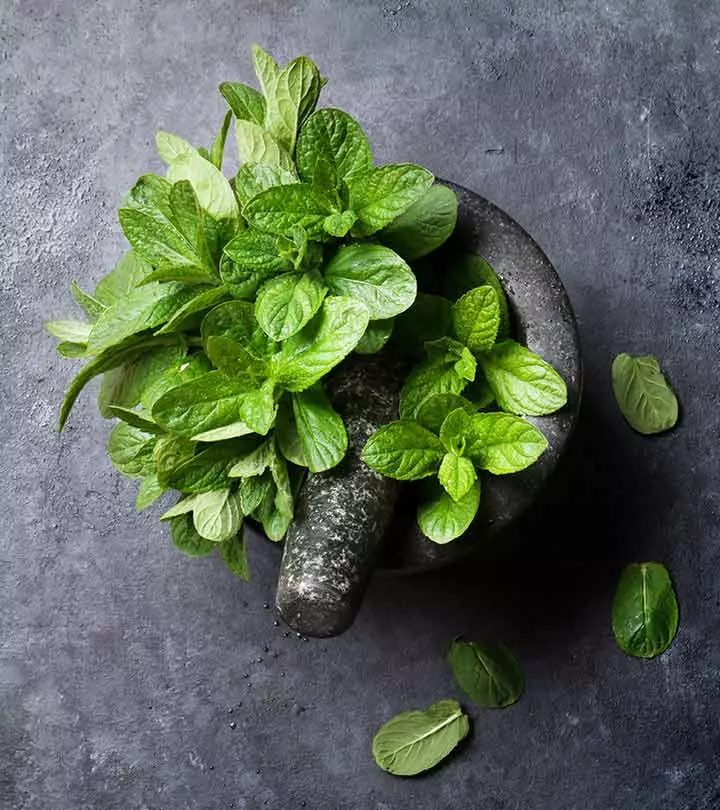
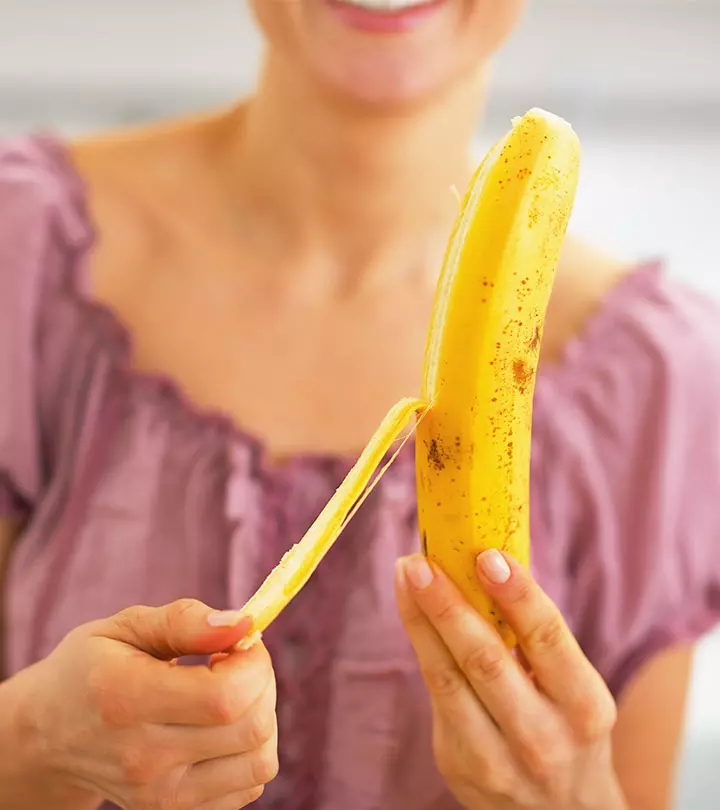
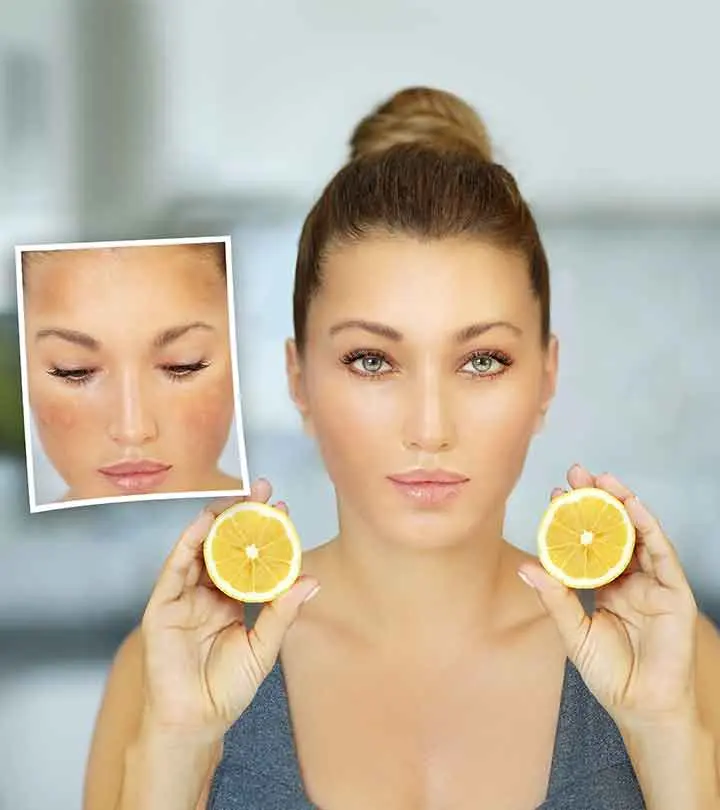
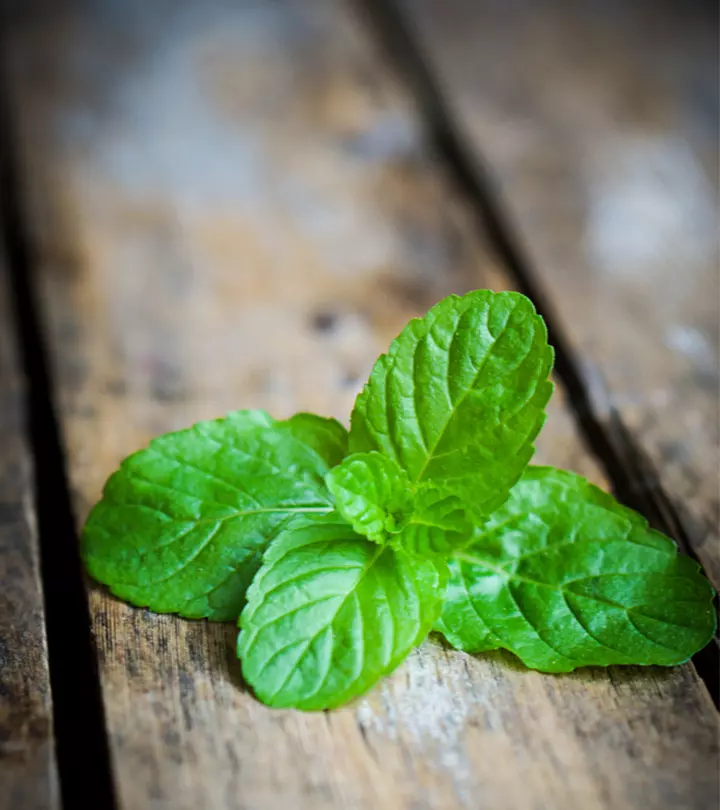
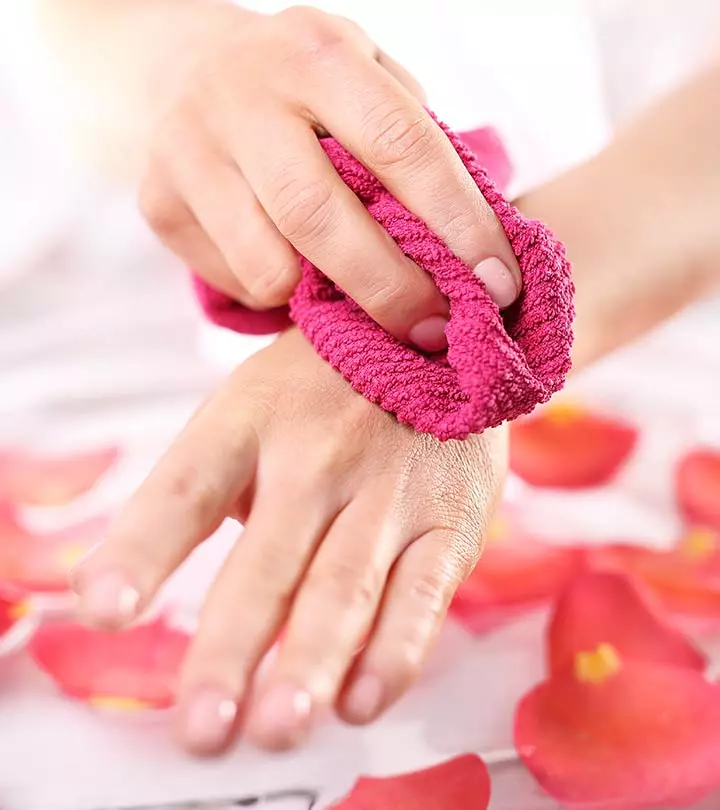
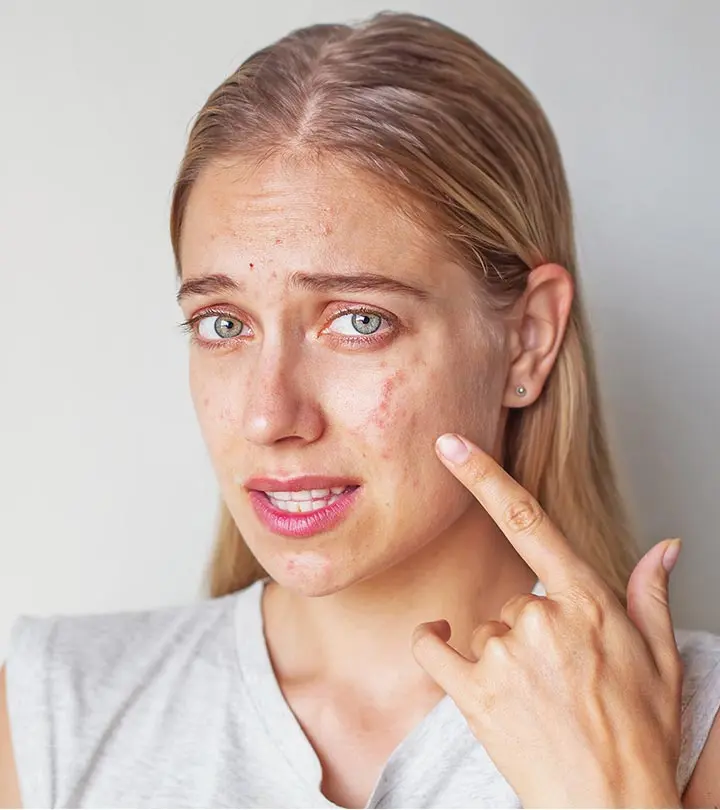
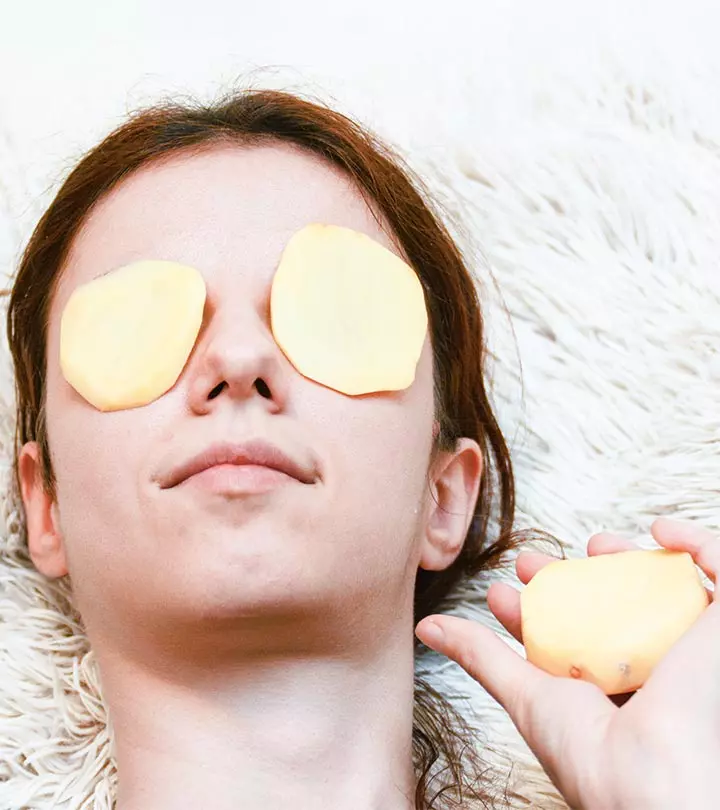
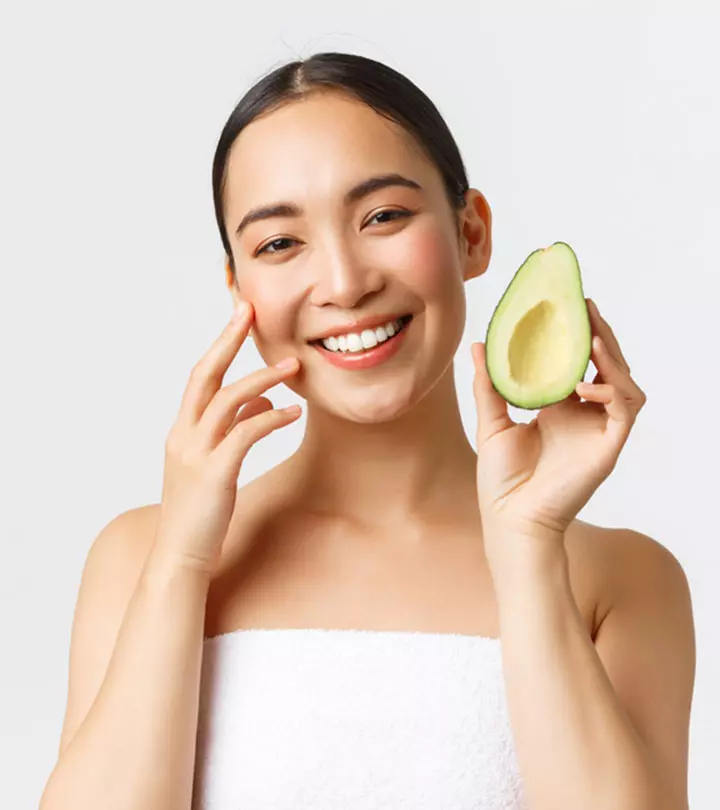
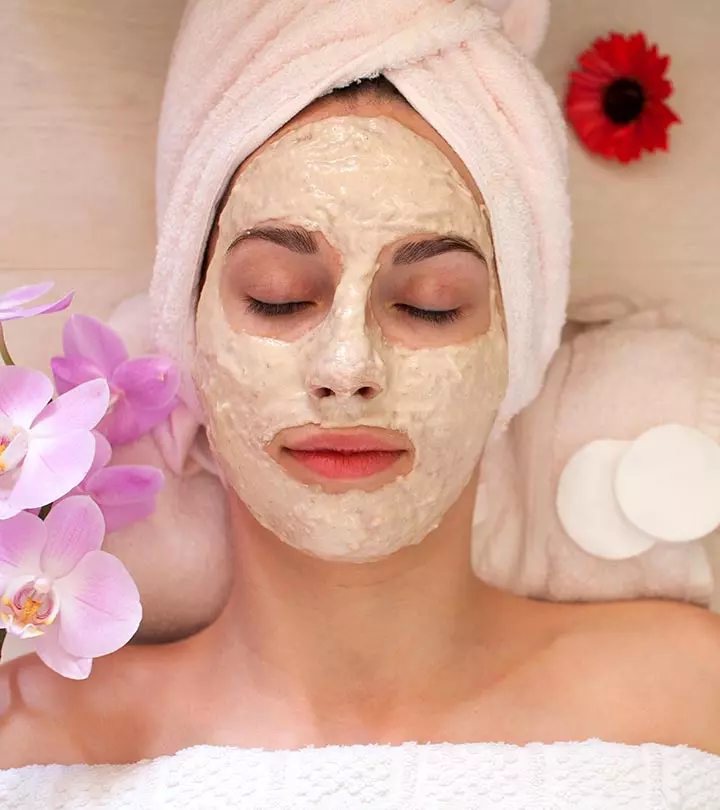
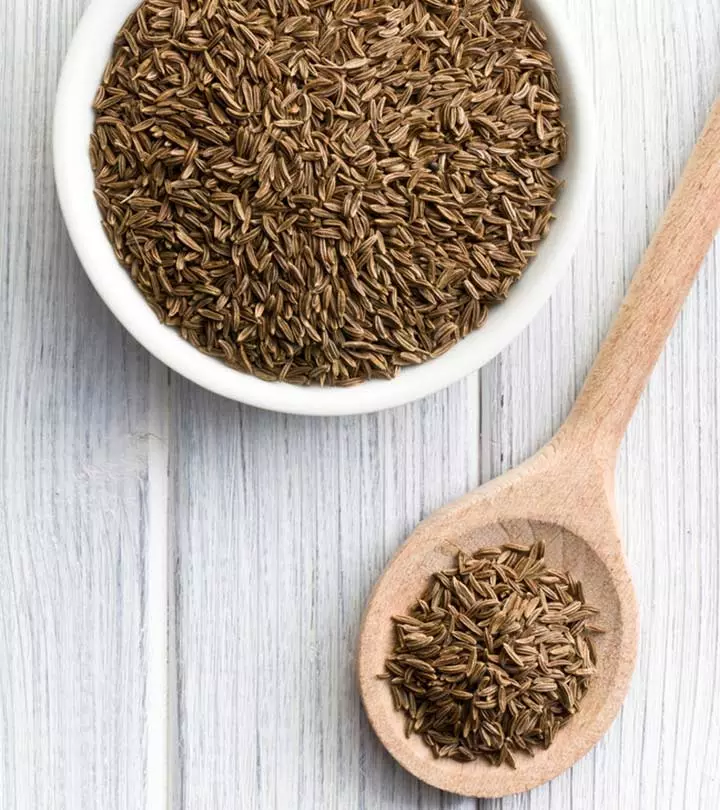



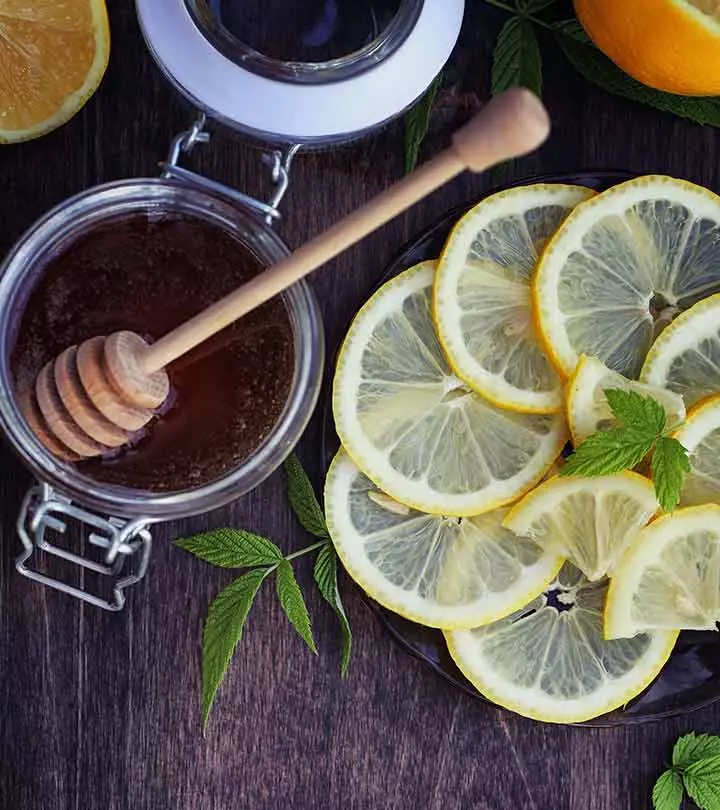

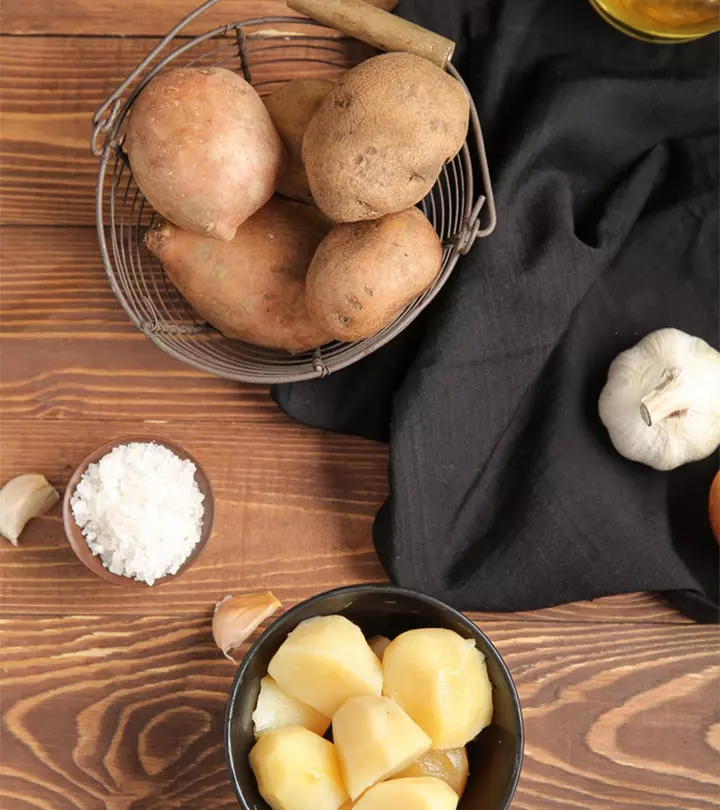
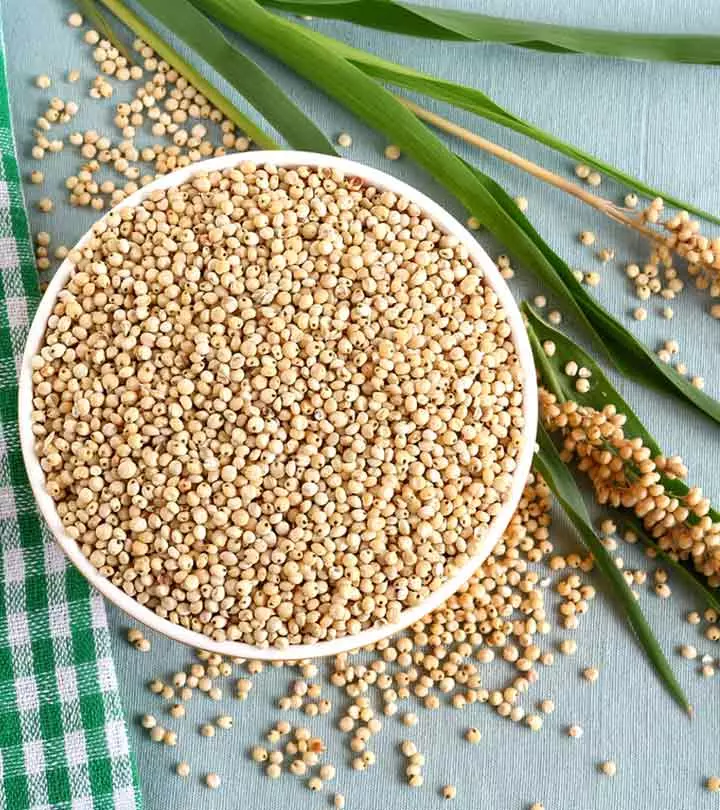




Community Experiences
Join the conversation and become a part of our empowering community! Share your stories, experiences, and insights to connect with other beauty, lifestyle, and health enthusiasts.